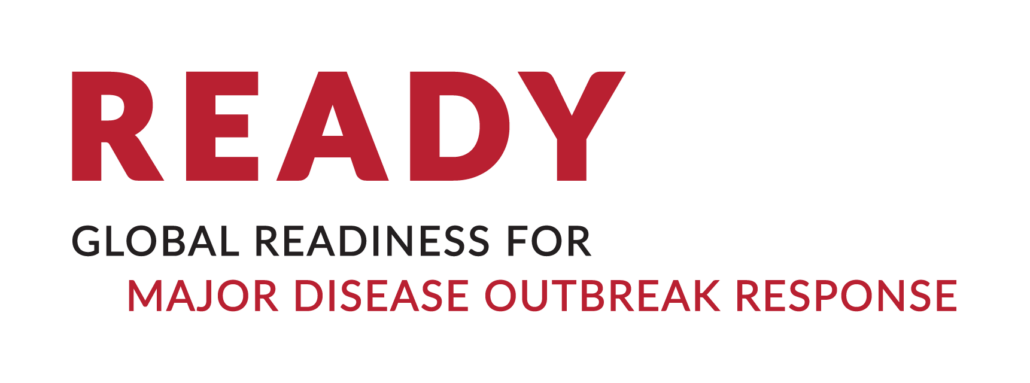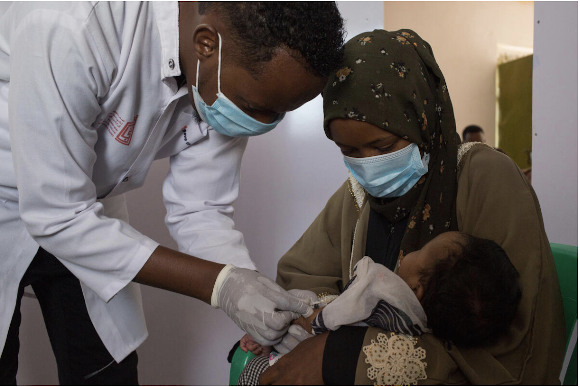Le vaccin contre la COVID-19 parviendra-t-il un jour aux populations déplacées de force ?
Speakers: Prof. Heidi Larson, LSHTM; Colette Selman, Gavi; Dr. Morseda Chowdhury, BRAC; Dr. Ayoade Olatunbosun-Alakija, Former Chief Humanitarian Coordinator, Nigeria; Dr. Joanne Liu, University of Montreal and former International President of MSF
Efforts are underway to accelerate the development and distribution of a COVID-19 vaccine, with the emphasis so far being on highlighting equity in distribution among countries. While COVID-19 has disproportionately greater impact on certain populations, including forcibly displaced populations, it is often politically untenable to say that this group should be given priority when it comes to planning vaccination campaigns.
Seroprevalence studies show suboptimal immunity to various vaccine-preventable diseases among refugees, and lower vaccination coverage of these groups compared with local host populations has also been observed. In addition, there are specific barriers—informal (language, access to information and culture) and economic and administrative that prevent them from spontaneously accessing immunization campaigns. What does this mean for the COVID-19 vaccine reaching forcibly displaced populations? How can access be guaranteed? What are the ethical issues? How will logistics be dealt with in humanitarian settings? Join Professor Heidi Larson and select panelists as they discuss this critical and disputed issue.
MODERATOR: Professor Heidi Larson, Professor of Anthropology, Risk and Decision Science, London School of Hygiene and Tropical Medicine | Heidi Larson is an anthropologist and Director of The Vaccine Confidence Project (VCP); Professor of Anthropology, Risk and Decision Science, LSHTM; Clinical Professor, Department of Global Health, University of Washington, Seattle, USA, and Guest Professor at the University of Antwerp, Belgium. Dr. Larson previously headed Global Immunization Communication at UNICEF, chaired GAVI’s Advocacy Task Force, and served on the WHO SAGE Working Group on vaccine hesitancy. Her particular research interest is on risk and rumor management from clinical trials to delivery – and building public trust. She is author of Stuck: How vaccine rumours start and why they don’t go away (OUP 2020).
PANÉLISTES
- Colette Selman, Regional Head, Country Support, Gavi, the Vaccine Alliance: Colette has over 15 years of experience in public health and development including at Gavi, GFATM, European Commission, NGOs and the private sector, with a focus on fragile and conflict settings.
- Dr. Morseda Chowdhury, Associate Director, Health, Nutrition, and Population Programme, BRAC: Morseda Chowdhury has worked at BRAC for over 15 years, and leads its public health response to the COVID-19 pandemic, including with forcibly displaced Rohingya populations.
- Dr. Ayoade Olatunbosun-Alakija, Former Chief Humanitarian Coordinator, Nigeria: Dr. Olatunbosun-Alakija is a globally renowned authority on bridging the nexus between humanitarian action and sustainable human development. As Nigeria’s Chief Humanitarian Coordinator, at the helm of the Emergency Coordination Centre, she has served as a high-level interlocutor between state and non-state actors at governmental and intergovernmental levels.
- Dr. Joanne Liu, Associate Clinical Professor, University of Montreal; former International President of Médecins sans Frontières: Joanne Liu is a leading voice on medical humanitarian crises, and served as International President of Médecins sans Frontières (MSF) from 2013 to 2019. She remains a practicing doctor, both in the field with MSF and through hospital shifts in Montreal.


Ce site Web est rendu possible grâce au soutien du peuple américain à travers le Agence des États-Unis pour le développement international (USAID) dans le cadre de l’initiative READY. READY (pas un acronyme) est soutenu par l'USAID Bureau pour la démocratie, les conflits et l'assistance humanitaire, Bureau américain d'assistance en cas de catastrophe à l'étranger (OFDA) et est dirigé par Sauver les enfants en partenariat avec le Centre Johns Hopkins pour la santé humanitaire, le Centre Johns Hopkins pour les programmes de communication, Royaume-Uni-Med, Alliance ÉcoSanté, et Miséricorde Malaisie. Le contenu de ce site Web relève de la seule responsabilité de Save the Children. Les informations fournies sur ce site Web ne reflètent pas nécessairement les points de vue de l'USAID, de l'un ou de tous les partenaires du consortium, ou du gouvernement des États-Unis, et ne constituent pas des informations officielles du gouvernement américain.


